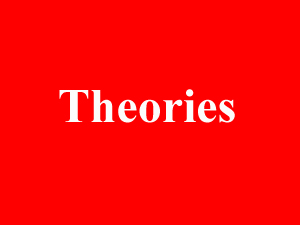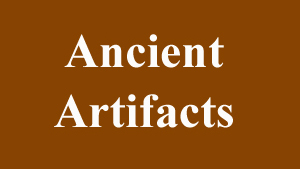A light bulb goes off in your head. An apple bops you in the head. Whatever the cause, theories involve the head. More specifically, they involve the imagination. Theories, of course, entail more than solving mathematical  equations. Theories often require the first birth of said equations from the mysterious ether of ideas. (Ether? Well, not all theories succeed.)
equations. Theories often require the first birth of said equations from the mysterious ether of ideas. (Ether? Well, not all theories succeed.)
Each of these nominations below required its author to make a novel intuitive leap. Some of those leaps landed on firm ground. Other fell into the void of history. Regardless, they each represent a stepping stone to further discovery.
The Original Nominations
The following candidates were nominated under the Theories category. Highlighted candidates have a separate description page already posted to this site. To view any highlighted nominees, place your cursor anywhere over the text of the nominee and click (pop-ups must be enabled on your browser):
Geocentric – Ptolemaic View (circa 100AD)
Heliocentric – Copernican Revolution (1543) – On the Revolutions of the Celestial Spheres (De Revolutionibus Orbium Coelestium)
Kepler’s Laws of Planetary Motion (1609) – The New Astronomy (Astronomia Nova) and (1619) – Harmonies of the World (Harmonices Mundi)
Galilean Mechanics (1632) – The Dialogue Concerning the Two Chief World Systems (Dialogo Sopra i Due Massimi Sistemi del Mondo)
Newton’s Laws [Universal Law of Gravitation; Escape Velocity] (1687) – The Mathematical Principles of Natural Philosophy (Philosophiæ Naturalis Principia Mathematica)
Titius-Bode Law (1772)
Black Holes (1783)
Kant-Laplace Nebular Hypothesis (1796)
Doppler Effect (1842) – On the Coloured Light of Double Stars and Certain Other Stars of the Heavens
Olbers’ Paradox (1823/1826)
Electromagnetic Field Theory (1864)
Relativity (1905/1915)
Hertzsprung-Russell Diagram (circa 1910)
Big Bang Theory (1927-1931: Lemaître)
Hubble’s Law (1929)
Thermonuclear Fusion (1938: Hans Bethe)
Steady State Theory (1948)
“Dirty Snowball” Comet Theory (1949: Fred Lawrence Whipple (1906-2004))
Not all the nominees made the top 100. Still, we’ve tried to include a short write-up on each of them. Any nominee that finished in the top 100 greatest images and imaginations in astronomy and space exploration will have its rank listed in the upper left hand corner of the specific page devoted to that nominee.




1 Trackback / Pingback